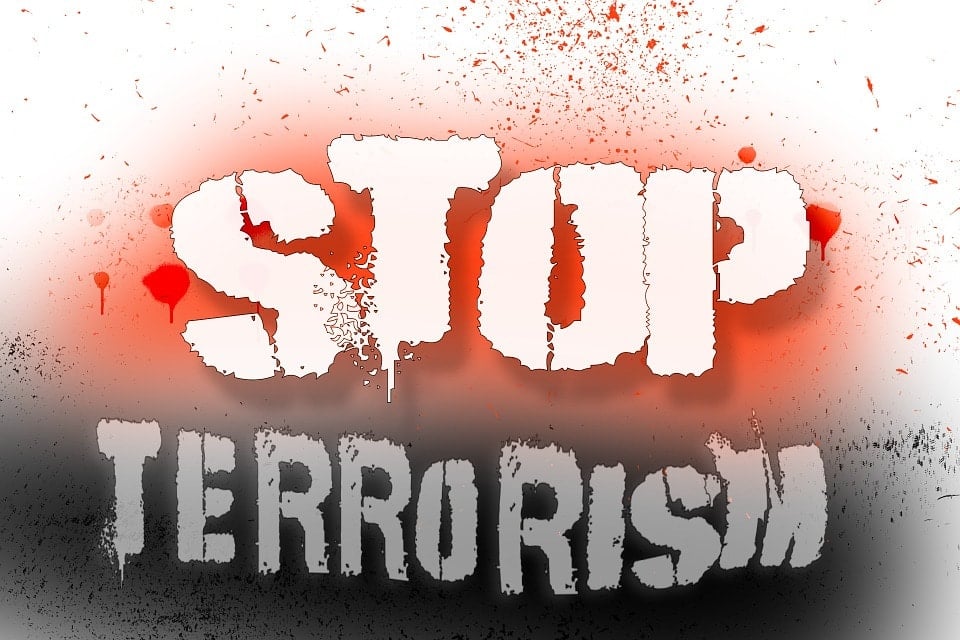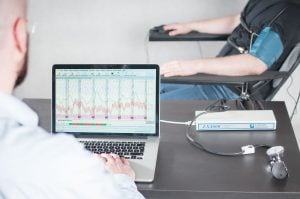It is with great sadness that we extend our condolences to the families of those who lost their lives in the London Bridge terrorist attack. Our heartfelt sympathy also goes out to those who were injured. In the past we have called for convicted terrorists, such as Usman Khan, to take lie detector tests before being released from prison. At the very minimum they should be monitored by the polygraph until considered safe.
Usman Khan, who murdered two people and injured several others last Friday, was a convicted terrorist being monitored with an electronic tag. Details emerged over the weekend that have left many people incredulous.
Who was Usman Khan?
Khan was born in Britain to Pakistani parents in 1991. His childhood was spent in Stoke on Trent. When he was 19 years old he was convicted of conspiring with others to bomb the London Stock Exchange. 8 co-conspirators stood trial with him. An indeterminate sentence was imposed on him in 2012 after he was considered to be a danger to the public. He was to serve a minimum of 8 years in prison. As the law stood at the time, he could have been detained in prison for much longer than the minimum term.
However, in 2013 his sentence was fixed at 16 years, plus 5 years on parole, after the Court of Appeal overturned the original sentence. In December last year he was let out of prison on automatic early release. No Parole Board hearing was necessary. Many people are understandably outraged that he only served half of his sentence.
Conditions imposed on Khan included that he lived in Staffordshire and wore an electronic tag to monitor his movements. He was not allowed to enter London and was obliged to participate in a de-radicalisation program.
What was Khan doing in London?
Usman Khan was granted special permission to go to a de-radicalisation conference hosted by Cambridge University in London on Friday 29 November. Having sat through the morning session the conference broke for lunch. When they returned Khan launched his attack brandishing 2 knives and wearing what appeared to be a ‘suicide’ vest.
We don’t intend to belabour the point as to what happened thereafter since most people are aware that the resulting carnage led to the deaths of two innocent people and injured 3 more. Khan will commit no further terrorist attacks since he was shot dead by police after heroic standers by had restrained him. It later transpired that the ‘suicide’ vest was fake.
The blame game
Since this tragedy politicians have been blaming each other for Khan’s release. The Home Secretary, Priti Patel responded to criticism on Twitter by former shadow Home Secretary Yvette Cooper. Legislation introduced in 2008 by Labour IPP (Imprisonment for Public Protection) was repealed in 2012 by the Conservative/LibDem coalition in 2012. Ms Cooper tweeted that Labour had ‘warned about the risks’ of repealing it. Priti Patel pointed out that the law was changed to stop the automatic release policy that Labour had put in place. Khan was convicted before the legislation was repealed.
Social media platforms went into overdrive with some considering that Khan should never have been released. Others felt the police should not have shot him. Talk radio stations have been debating the issue throughout the weekend and are still doing so.
The former head of UK National Counter Terrorism Security, Chris Phillips stated “We are playing Russian roulette with people’s lives by letting convicted, known, radicalised jihadi criminals walk about our streets. The criminal justice system needs to look at itself.”
How lie detector tests for convicted terrorists can help
The polygraph is already widely and successfully used in the monitoring of sex offenders and domestic abusers released on parole. However, there is no reason why lie detector tests for convicted terrorists can’t be administered before they leave prison.
The polygraph is an investigative tool that can reveal a lot about the character and intentions of those who submit to it. Another method of revealing the truth of what terrorists say is SCAN (Scientific Content Analysis). This involves criminals completing a questionnaire and a trained SCAN examiner analysing the truth of their responses.
Video footage of Usman Khan in 2008, when he tells the world “I ain’t no terrorist” after an anti terrorist police raid on his home can be accessed by clicking here
Usman Khan spent most of his adult life with radical terrorist tendencies, associating with known hate preachers such as Anjem Choudary.
As politicians play the blame game and opine that terrorists “will not divide us” the public is becoming more frustrated. A terrorist certainly ‘divided’ some people from their families last Friday and it is by no means the first time this has happened. Unless something dramatically changes, we doubt it will be the last.
It may well be that the Home Office will evaluate the success of polygraph tests currently being used in law enforcement and extend their use. Prevention has to be the priority now. Lie detector tests for convicted terrorists, administered prior to them leaving prison, could easily be the way forward.


